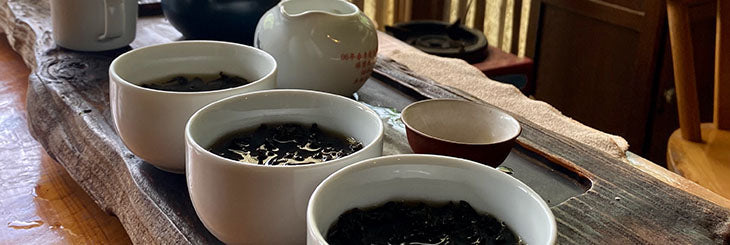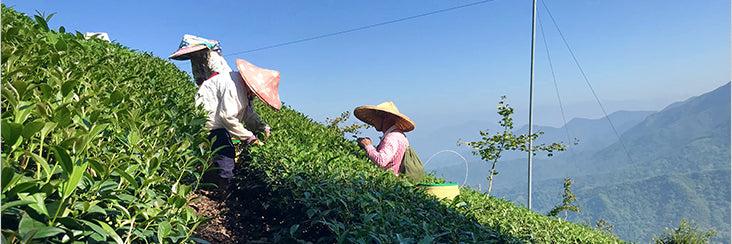News

Qing Ming Festival Weather Update
Normally, this holiday also marks the beginning of spring harvest in central Taiwan's largest tea producing regions. Due to the lack of rain thus far in 2023, the spring tea growing season has been delayed. The tea growing areas in northern Taiwan seem to be getting enough rain however, and spring harvest is on schedule for Sanxia's Bi Luo Chun, Pinglin's Wenshan Baozhong, and Muzha's Tie Guan Yin Oolong.

Wenshan Baozhong Spring 2022 Sourcing Trip | Eco-Cha Teas
Above we can see the Pinglin District to the southeast of Taipei, but still within New Taipei City limits. Pinglin is not far at all from Taiwan's largest metropolis, but it feels more remote and rural than most developed regions on the island of Taiwan. It really feels like a relic of the past, in stark contrast to the modern city nearby. This rural community that produces a world-renowned tea is a historical landmark in its own right. We are privileged to represent this specialty tea in the international tea community.

Taiwan Tea Masters Seminar 2021
Taiwan's Tea Research and Extension Service (TRES) recently hosted a seminar that showcased the tea making skills of 15 champion prize winning tea masters from throughout Taiwan. Each shared his skill in making a particular type of tea. Here we give a behind-the-scenes look at what went down at this one of a kind event.

Tie Guan Yin Oolong Spring Tea Is Here!
Over the course of our chat, catching up on spring harvest, competition, and other tea related topics, we realized that this artisan of Traditional Tie Guan Yin Oolong is the single most patient and painstaking tea maker we know. The amount of time and serious labor he puts into making a very minimal amount of tea is just so far off the charts of any other type of tea production we've seen. Oh, and he won first place prize a year and half ago, amidst top 2% and top 10% prizes that he is awarded consistently in the Muzha Farmers' Association Traditional Tie Guan Yin Oolong Tea competition.

Taiwan's Top 10 Most Famous Teas
Taiwan is home to some of the finest tea in the world, particularly in the Oolong category. Yet, not all Taiwanese teas are widely recognized or understood by name. So here is an overview of the top ten most famous teas from Taiwan.

A Guide to Unroasted Taiwan Oolong Tea
Taiwan makes some of the best teas in the world, especially of the Oolong variety. Given the breadth and scope of teas the island produces, it can sometimes be confusing exactly what tea to buy. To help you out, we've compiled a simple guide to Taiwan's unroasted Oolong Teas to help you find your "cup of tea".

